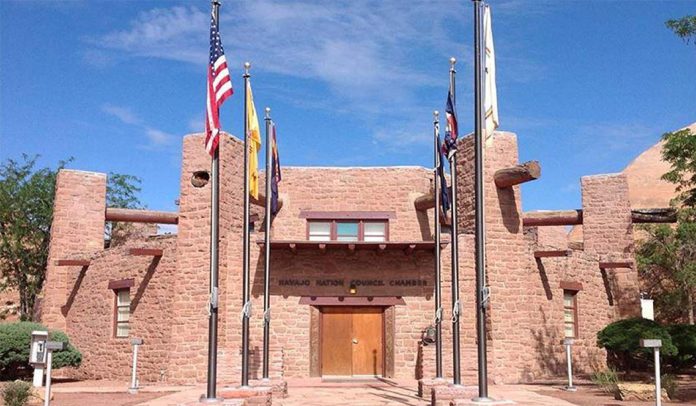WINDOW ROCK, AZ – Navajo Nation President Buu Nygren took questions from the press this week just hours before he boarded a flight to Washington to lobby for the country’s largest Indian water rights settlement. On Monday, U.S. Senators Mark Kelly (D-AZ), Kyrsten Sinema (I-AZ), Representative Juan Ciscomani (R-AZ), Congressman Greg Stanton (D-AZ), Congressman David Schweikert (R-AZ) and Congressman Rauìl Grijalva (D-AZ) introduced bipartisan legislation in support of the Northeastern Arizona Indian Water Rights Settlement Act.
The historic settlement was approved unanimously in May by the Navajo Nation Council, the Hopi Tribal Council and the San Juan Southern Paiute Tribal Council. If authorized by Congress, the settlement legislation will settle water rights to the Colorado River, Little Colorado River, groundwater of the Navajo and Coconino aquifers beneath the Navajo Nation, provide reservation land to the San Juan Southern Paiutes, and provide funding for infrastructure to deliver water to families who have none.
“We’ve got thousands and thousands of Americans in Arizona without running water,” President Nygren told Navajo and regional reporters during a virtual press conference. Also speaking was Navajo Nation Speaker Crystalyne Curley and Navajo Nation Attorney General Ethel Branch.
“It’s about time we get some water and infrastructure to Arizona citizens and U.S. citizens,” said Nygren. “It’s just due, especially with climate changes that we talked with them about when we go up to Congress.”
Asked about the current Washington political climate with the need to get a $5 billion water rights bill passed, President Nygren said there was no time to waste before the national election.
“We are very ambitious,” said Nygren. “The current president is very supportive. He’s been very supportive of Arizona, very supportive Navajo and the Native American tribes. By having it introduced by a House Republican and a Democratic senator, I think that we’ve got the bipartisan support from the beginning.”
“We want to make sure that everyone that is in place now has an opportunity to vote on this legislation,” said Attorney General Branch. “It’s quite complex and we want to make sure that everyone is up to speed and we don’t lose any time and, of course, we lock in these rights as soon as possible.”
Speaker Curley acknowledged that the legislation faces a tight timeframe.
“It’s going to be really fast-paced movement,” said Curley. “We have to set this as a priority because our 110 communities provided a lot of feedback, a lot of personal testimonies from all constituents for this legislation to go forward.”













































